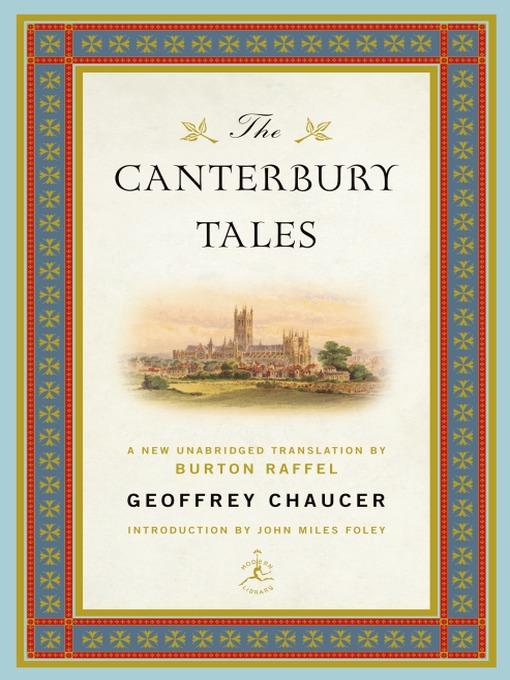
The Canterbury Tales
- اطلاعات
- نقد و بررسی
- دیدگاه کاربران
نقد و بررسی

October 1, 1988
Like Charles Lamb's edition of Shakespeare, Hastings's loose prose translation of seven of Chaucer's tales is more faithful to the work's plot than to the poet's language. This is not a prudish retelling (even the bawdy Miller's tale is included here) but the vigor of Chaucer's text is considerably tamed. In the original, the pilgrims possess unique voices, but here the tone is uniformly bookish. The colloquial speech of the storyteller is replaced by formal prose; for example, while Cohen (see review above) directly translates Chaucer's ``domb as a stoon'' as ``silent as stones,'' Hastings writes ``in solemn silence.'' Cartwright's startling paintings skillfully suggest the stylized flatness of a medieval canvas, but often without the accompanying richness of detail. Like Punch and Judy puppets, the faces and voices of these pilgrims are generally representative but lack the life and charm of the original text. Ages 10-up.

November 1, 2009
Burton Raffel has made two key decisions in his rendition of Chaucer's greatest work. While most editions stick to the half-dozen or so best-known stories—the raunchy"Miller's Tale" and the proto-feminist"Wife of Bath's Tale" being the most popular with contemporary readers—Raffel offers modern English versions of even such unfinished fragments as"The Squire's Tale" and such often-skipped sections as"The Parson's Tale." Few today will be burning to hear from the longwinded parson, but in general this unabridged edition is a delight. It lets you appreciate the masterful way Chaucer unifies his stylistically and topically diverse stories with a few overarching themes: the proper relationship between man and woman (the answer's not what you'd expect from a 14th-century civil servant), the role of the clergy (they're only human in his realistic portraits), the all-powerful impact of chance on our destinies. Having the full text also enables readers to enjoy the sly way Chaucer toys with them, allowing his raconteurs to interrupt their narratives with such tantalizing phrases as,"but nothing like that can be included here." The unabridged edition provides more opportunities to savor the counterpoint of Chaucer's earthy humor against passages of piercingly beautiful lyric poetry.
That glorious language—there's the rub in Raffel's second decision. Most modern editions of Chaucer include his Middle English text on the facing page; it's the simplest way to make sure readers know what's going on but still hear Chaucer's distinctive voice. Raffel's modern English captures to a large extent the polyphonic vigor of Chaucer's verse and prose. But he cannot capture Chaucer's voice."When April arrives, and with his sweetened showers / Drenches dried-up roots, gives them power / To stir dead plants and sprout the living flowers / That spring has always spread across these fields," is lovely. Can it equal,"Whan that Aprill with his shoures soote / The droghte of March hath perced to the roote, / And bathed every veyne in swich licour / Of which vertu engendred is the flour"? Of course not, and it would be unfair to expect it. But it would be nice to look across the page from Raffel's lucid, lyrical rendition and be able to see the gnarled yet delicate taproot from which grew Shakespeare, John Donne and the King James Bible.
You can't blame Raffel or Modern Library. An unabridged dual-language version would run more than 1,000 pages, making it prohibitively expensive and inaccessible to non-students who might want to use it somewhere other than at their desks. Keeping the oldest portions of our literary heritage alive for contemporary readers always involves compromise. If we lose some of the deepest levels of Chaucer's poetry here, we are partly compensated with the full sweep of his zestful, unsentimental understanding of human nature and his abiding love for all kinds of good stories.
(COPYRIGHT (2009) KIRKUS REVIEWS/NIELSEN BUSINESS MEDIA, INC. ALL RIGHTS RESERVED.)




دیدگاه کاربران